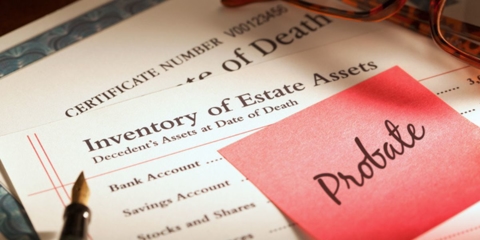When people find out that I’m a lawyer, I am usually bombarded with a mix of bad jokes and questions about how to get out of traffic tickets. When people find out that I primarily deal with estate planning, I get two questions: “What’s that?” and “Do I really need that?”
What Is an Estate Plan?
An estate plan is a collection of documents used to help someone make arrangements for when they pass away or become incapacitated. It includes naming guardians for minor children, giving instructions on what should happen to someone’s assets when they pass, organizing property to avoid probate, and naming individuals who can take care of things when someone becomes incapacitated. Specifically, an estate plan usually includes documents such as wills, trusts, powers of attorney, health directives, and living wills.
Do I Need an Estate Plan?
In the absence of an estate plan, how things will be settled after you pass away is determined by state law. In many cases, state law tends to align with what we would ordinarily like to have happen if we were to pass away. However, state statutes are not one-size-fits-all and even the most ordinary person will likely want to deviate (even if it’s just slightly) from a state’s default provisions. Also, in most states, an estate plan is required if you want to avoid someone having to probate your estate when you’ve passed away. In short, an estate plan allows you to make sure your estate can be resolved without court involvement and in a way that aligns with your wishes.
When Should I Get an Estate Plan?
People tell me all the time that they don’t need an estate plan because they don’t have very much in terms of assets. The truth is, most of the benefits of an estate plan have little to do with how much you have and a lot more to do with what you want. Virtually everyone can benefit from having an estate plan in place. However, there are three common life events that I think should nudge most people to visit an estate planner.
Birth of a Child
I recently met with a client who was concerned that if he passed away, his daughter would go to his parents. His concern stemmed from interactions with them that suggested their only interest in his daughter was her inheritance. He was quite relieved when I let him know he could nominate guardians for his daughter in his will in the event he passed away before she reached adulthood. Estate plans are particularly important when you have a child because they allow you to control who will be in charge of taking care of your children if something were to happen to you. In addition to guardianship, an estate plan can help spell out how your assets can be used when you pass away to make sure that your children are being taken care of.
Purchase of Real Estate
One of my principal objectives as an estate planner is to help my clients avoid probate. Probate is the legal process of administering a person’s estate when they pass away. It involves getting permission from a court to divide the property of someone who has passed away. In most states, if you have any real estate in your name when you pass away, your heirs will have to go to probate. Estate planning often involves creating a trust that holds any real estate you might own. By transferring the property to the trust, you can make sure that your property will pass on to your heirs without having to go to court. This not only saves the hassle of involving the court but also saves your heirs substantial amounts of money.
Change in Marital Status
I recently worked with a couple who had been together for several years but were not married. They wanted to transfer property to one another but were worried about the tax consequences of what would be sizable gifts. One of the clients asked if things would be easier if they were married. I told them it would. Less than 48 hours later, they gave me a wedding date.
I don’t think there’s anything more life-changing from a legal perspective than getting married. Marriage confers on each of the spouses a plethora of legal rights, including rights related to inheritance. That can cause problems when one spouse may be bringing their own children into the marriage and would prefer that their assets be used to take care of their children rather than go to a new spouse. Conversely, divorce can be equally consequential in terms of changing the legal landscape of how a person wants their estate to be divided up. Good estate plans can address unique family situations and ensure that your wishes regarding your estate will be honored upon your passing.
About the Author
Attorney Paden Hanson helps Pearson Butler’s clients navigate estate planning, as well as securities regulation, corporate governance, and business formation. Like the rest of our firm’s attorney team, he takes a hands-on, results-oriented approach to help entrepreneurs, businesses, and Utah residents resolve legal issues promptly.
To schedule a free consultation with Attorney Hanson, contact Pearson Butler online today.




[1].jpg)
